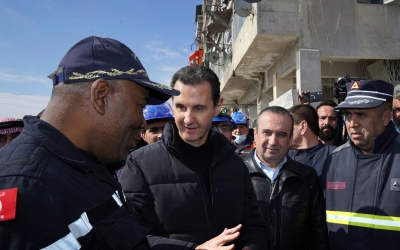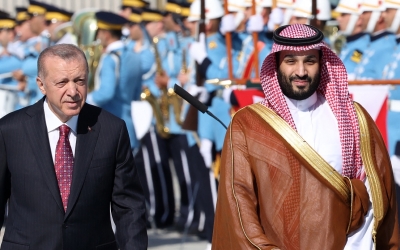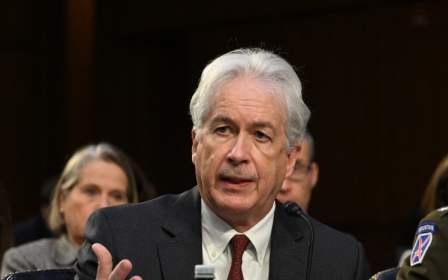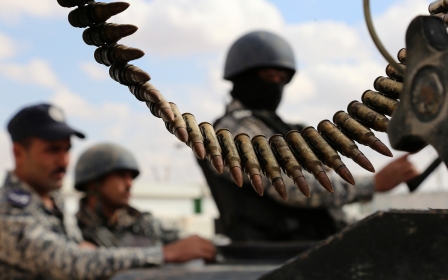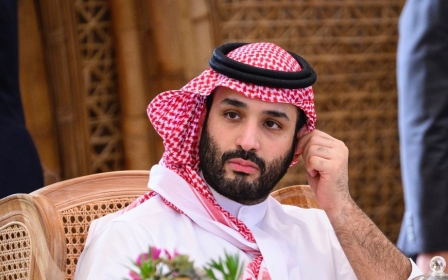Saudi Arabia faces Arab pushback over Syria normalisation: Report
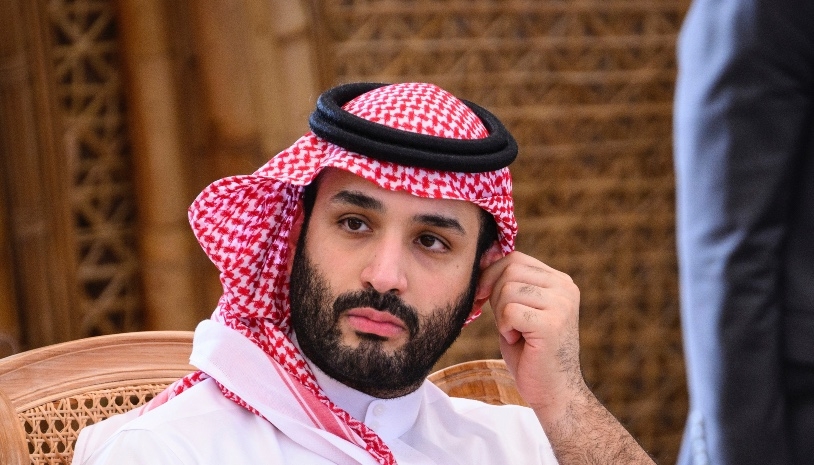
Saudi Arabia is facing pushback from some Arab states, including key allies, over plans to bring Syrian President Bashar al-Assad in from the cold ahead of an Arab League summit the kingdom will host in May.
At least five members of the Arab League - including Morocco, Kuwait, Qatar, and Yemen - have refused to readmit Syria into the group, the Wall Street Journal reported on Wednesday, citing Arab officials.
Middle East Eye reached out to the embassies of Morocco, Kuwait, Qatar, and Yemen in the US for comment on this report.
Even Egypt, traditionally one of Saudi Arabia's closest partners, has expressed reservations despite Syria and Egypt’s top diplomats recently meeting in Cairo, the report said.
The WSJ article follows Middle East Eye’s reporting that Egypt is privately moving slower on reconciliation with Syria than some of its public rhetoric has suggested.
New MEE newsletter: Jerusalem Dispatch
Sign up to get the latest insights and analysis on Israel-Palestine, alongside Turkey Unpacked and other MEE newsletters
A senior Arab Intelligence official previously told MEE that Cairo was wary of bringing Damascus back into the Arab fold over fears of US sanctions.
“Egypt is concerned about America’s position on Assad. They don’t move so fast,” the official told MEE on condition of anonymity.
Egypt, for example, has been reluctant to agree to a deal to supply gas to Lebanon via Syria because of US sanctions.
Syria has been on a diplomatic blitz in the wake of two deadly earthquakes. In addition to a steady drumbeat of visits to regional capitals by the country’s foreign minister, Assad has travelled to Oman and the UAE, but Damascus appears to have received little tangible gains.
The US eased some sanctions on Syria for 180 days for transactions related to earthquake relief efforts, but the country has not been able to tap its energy-rich neighbours and regional investors to begin funding reconstruction, which the UN estimates will cost around $250bn.
For their part, holdouts to Damascus’ return to the Arab League are frustrated that Assad has not moved on his position. They want to see him engage meaningfully with Syria’s political opposition before Damascus is readmitted, according to the WSJ.
Some of the countries have reiterated demands that Syria accepts Arab troops to protect returning refugees, crack down on its flourishing drug trade and do more to stop Iran from deepening its footprint in the country, the WSJ reported.
But analysts and officials have raised questions about whether Assad could enact these policies, even if he wanted to.
Although Assad has managed to claw back most of the Syrian territory, his own troops are depleted and he relies on Iranian proxies.
The trafficking of Captagon, an addictive amphetamine drug, to wealthier Gulf states, has emerged as the war-torn country’s most valuable trade and a key source of income for the government in Damascus.
Maher al-Assad, the brother of the Syrian president who heads the notorious fourth division of the Syrian Arab Army, is believed to control a vast Captagon trading network, along with Assad family members, according to investigations by news outlets including The New York Times.
Saudi Arabia's gambit
The report underlines the potential roadblocks Saudi Arabia’s Crown Prince Mohammed bin Salman faces as he looks to reshuffle the region’s geopolitical map, with Syria emerging as the latest chess piece to Riyadh’s independent foreign policy gambit.
In March, Saudi Arabia agreed to restore ties with Iran, one of Assad’s main backers, in a deal brokered by China. A few weeks later, the kingdom corralled fellow Opec states to make “voluntary” cuts in their oil production that could remove a million barrels of crude a day from the global market.
The UAE had initially led efforts to revive ties with Damascus. Saudi Arabia might find that achieving consensus on Syria among its Arab states is a tougher sell than arranging oil cuts.
Each country has separate asks. According to the WSJ, Morocco wants to see Assad end support for the Polisario Front, a rebel movement that is battling Rabat for an independent Western Sahara.
Even Yemen’s internationally-recognised government, which is based in Riyadh, has pushed back against its Saudi allies, citing Syria’s support to Houthi rebels, the WSJ said.
Saudi Arabia is negotiating a truce with the Iran-aligned Houthis. This week, Saudi ambassador Mohammed al-Jaber travelled to Sanaa, Yemen's rebel-held capital, in a landmark visit to negotiate a "comprehensive political solution" between the Houthis and the ousted government.
Although Saudi Arabia and Qatar have made progress to mend ties since their rift, Doha has publicly ruled out normalisation.
The WSJ report came during a visit by Syria’s foreign minister to the Saudi Red Sea port city of Jeddah to meet his Saudi counterpart.
Saudi's foreign ministry said the two would discuss "efforts to reach a political solution to the Syrian crisis that preserves the unity, security and stability of Syria".
On Friday, the Gulf kingdom is set to host a meeting of regional foreign ministers to discuss Damascus returning to the Arab League. Syria can return to the group with the backing of a simple majority but needs a consensus for it to be binding for all members.
This article is available in French on Middle East Eye French edition.
Middle East Eye delivers independent and unrivalled coverage and analysis of the Middle East, North Africa and beyond. To learn more about republishing this content and the associated fees, please fill out this form. More about MEE can be found here.


